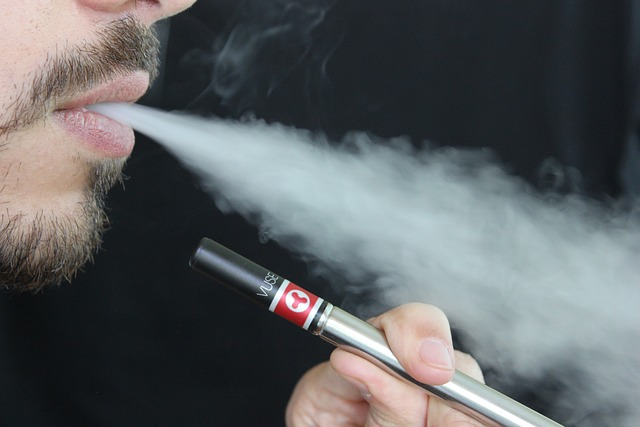

How to Quit Smoking Weed: A Step-by-Step Guide
Are you determined to commence your transformative experience in how to quit smoking weed? If so, look no further. This detailed guide will give you all the skills and facts that are required to overcome marijuana addiction and live a healthier lifestyle with more satisfaction.
Understanding both the physical and mental effects of using cannabis as well as different techniques used when attempting to end its use, we have included everything necessary for quitting successfully and keeping up long-term success during this journey away from marijuana consumption.
Let us take this opportunity together on our quest to be free from weed dependence!
Key Takeaways
-
Understanding marijuana addiction and its effects is key in order to stop smoking weed.
-
Develop a plan for quitting with the help of support networks, healthy coping strategies, and professional guidance.
-
Maintain long-term success by staying motivated, learning from setbacks like drug abuse, and celebrating milestones in your journey.
Understanding Marijuana Addiction

Smoking marijuana has been linked to developing dependencies or disorders like cannabis use disorder and marijuana use disorder. THC, a major active component in weed, can interfere with the endocannabinoid system, boosting dopamine levels, which makes it hard for smokers, particularly young adults who are more prone to addiction, to quit marijuana.
To aid people to stop smoking marijuana using this substance successfully, an awareness of the physical and mental effects associated with marijuana dependency must be established, as well as being mindful of indications that you may have become dependent on it.
This understanding will help someone prepare mentally for possible withdrawal symptoms or relapses when quitting cigarettes made from this drug altogether.
Physical and mental effects
Marijuana use can become a dependence and have physical repercussions, such as respiratory health such as breathing problems and cognitive reduction. Prolonged marijuana intake may lead to difficulties with focusing or remembering things.
In the event of quitting smoking weed, somebody might suffer from changes in their appetite/weight along with other withdrawal symptoms like irritation, worry, and difficulty sleeping.
The brain’s parts that oversee concentration levels, memory retention, moods, etc. are all vulnerable when it comes to cannabis cessation, producing negative impacts on those areas that were controlled by pot before quitting the drug.
Signs of addiction
Identifying the signs of marijuana addiction is an important element in seeking treatment and conquering dependence. Typically, neglecting responsibilities, using drugs to deal with stressors, and being afflicted by withdrawal symptoms when attempting to give up substance misuse are indications that a person has become addicted.
When trying to quit utilizing marijuana, there can be physical as well as mental effects, which might be difficult for someone going through withdrawals from frequent cannabis use to manage alone. Understanding these warning signals will help you create healthy coping mechanisms during this time while increasing your chances of becoming free of cannabis dependence successfully.
Going cold turkey off weed may cause disturbing psychological symptoms or mental health issues; thus, it’s critical to prepare themselves beforehand for those potential side effects so they won’t relapse due to losing motivation during the recovery process.
Strategies for Quitting Weed

There are multiple techniques to abstain from marijuana, and opting for the correct strategy relies on individual preferences and circumstances. Those who wish to quit may take a gradual approach of reducing cannabis use gradually over time.
Quitting abruptly (also known as cold turkey); or seeking therapy/rehabilitation support. It’s important to understand all methods before deciding which one is right for you so that it increases your prospects of ceasing alcohol, drug abuse, & weed consumption sustainably in the long run.
All options come with their own strengths & obstacles – careful consideration should be taken when selecting what works best within your situation.
Tapering off
Decreasing marijuana use gradually is known as tapering off, a technique used to adjust the body slowly and safely over time. As outlined by ASAM (the American Society of Addiction Medicine), this strategy can help reduce withdrawal symptoms when quitting marijuana while still being effective in achieving long-term abstinence.
Tapering off cannabis helps people manage their cravings more easily than attempting an abrupt quit – improving chances for success and diminishing any associated discomfort along the way. By systematically lowering doses with such a plan, users have greater potential for cutting out all marijuana use entirely without harsh physical effects that may come from rapid cessation methods or cold turkey strategies
Quitting cold turkey
When quitting marijuana usage abruptly, referred to as ‘quitting weed cold turkey’, this may result in more intense withdrawal symptoms but can be beneficial for individuals who are uncertain of their ability to decrease cannabis use slowly.
To make a successful attempt at ceasing weed intake using the approach of quitting cold turkey, it is crucial to build up a supportive social circle and employ constructive ways of coping with cravings. Getting rid of anything related to pot or drugs should help deter succumbing smoke weed impulsively and better chances overall while stopping marijuana consumption completely.
Professional help
For those trying to give up smoking marijuana and needing assistance, treatment programs are available. These options can equip patients with techniques for managing cravings while guiding them away from triggers. As well as improving lifestyle management skills along the way. By utilizing professional help such as therapy or rehabilitation centers you have a better chance of successfully quitting and sustaining long-term recovery results when attempting to quit smoking marijuana.
Preparing to Quit Smoking Weed

Prior to beginning your journey of quitting smoking weed, it is essential that you set attainable objectives, devise a plan, and seek assistance from those around you. Forming realistic goals can help keep up motivation levels as well as assist in monitoring progress.
Similarly creating an organized approach will allow for the management of withdrawal symptoms along with possible triggers. Reaching out to family members, close friends or even support groups may also be instrumental when striving to overcome marijuana addiction while being committed to the aim of quitting smoking weed.
It is critical that time and preparation go into this process in order to enhance success chances with regards to quitting cannabis use on a long-term basis. As one challenges themselves by taking steps towards becoming drug free know that they are progressing closer toward building not only healthier life but happier lives too!
Setting goals
Setting up realistic ambitions with regard to quitting smoking weed is fundamental to continuing motivation and keeping track of development during the course of giving it up.
If you create doable aims like reducing your marijuana use on a weekly basis or fixing an exact date on which you will give it all away, then this should help focus attention on that purpose while also enabling tracking toward living without cannabis consumption.
Stay devoted and reward yourself for any accomplishments. They can definitely assist as you strive towards stopping smoking weed altogether!
Creating a plan
Choosing a quit date is an important part of creating a plan to stop using marijuana. This will give you the chance to mentally prepare for any potential difficulties and challenges that may arise from quitting.
Taking note of possible triggers such as certain objects or places associated with marijuana use can be beneficial in developing strategies on how best to cope when confronted by them. Lastly, being mindful of withdrawal symptoms like physical and emotional discomfort should also be taken into account so one can have plans set up for dealing with it ahead of time.
Gathering support
Reaching out to friends, a family member, and/or support groups can be very helpful in achieving your goal of quitting smoking weed. Participating with loved ones could help strengthen bonds between you and provide encouragement during the process.
Joining programs like Narcotics Anonymous, Marijuana Anonymous or SMART Recovery is also a great way to get connected to people trying to achieve similar goals as yours. They offer much-needed understanding and advice along this journey too.
Recognize that having good moral backing around you may make all the difference when it comes time for quitting marijuana forever.
Managing Withdrawal Symptoms

If you’ve decided to quit using marijuana, the withdrawal symptoms can be difficult both physically and emotionally. In this guide, we’ll discuss what these symptoms are so that you have strategies for dealing with them successfully in order to achieve your goal of quitting long-term.
From physical discomfort such as headaches or nausea to emotional distress like anxiety or depression – understanding the signs of marijuana withdrawal is key if you want to make sure any attempts at stopping drug use will endure over time.
Herein lies tips on how best to manage each type of symptom along with advice surrounding maintaining a firm commitment towards abstaining from cannabis going forward.
Physical symptoms
The body’s lack of marijuana can lead to various unpleasant physical symptoms, such as nausea, decreased appetite and headaches, and impact your sleep quality. These discomforts are only temporary though, so it is essential to take care of yourself through eating a healthy diet and regularly drinking fluids during the withdrawal process.
It would also be beneficial to seek professional addiction treatment, from your healthcare provider for Personalised support throughout this time. Marijuana withdrawal may disrupt one’s daily routine, but with proper recovery efforts, you will soon adjust back into regular life once again after these passing distresses pass away.
Emotional symptoms
Quitting marijuana is difficult, especially with the uncomfortable emotions that come along with withdrawal such as depression, anxiety, and irritability. To help combat these symptoms while attempting to stay dedicated to kicking your habit, it may be useful to practice relaxation tactics like deep breathing or mindfulness.
Having a support system in place can also be beneficial for encouragement. Seeking out family members and/or joining groups specifically designed for those quitting a marijuana habit could prove particularly helpful during this process.
Tips for managing symptoms
Quitting marijuana is a difficult process, but it’s achievable with the right resources. Drinking plenty of water and engaging in relaxation techniques can help you manage withdrawal symptoms while getting support from friends or family may provide additional assistance.
It’s also beneficial to consult a healthcare provider for personalized advice on how best to handle your specific condition during this period of adjustment without cannabis use. Remember that each step taken towards managing these uncomfortable side effects will bring you closer to leading an overall healthier lifestyle free from weed consumption.
Replacing Weed with Healthy Alternatives

In order to successfully quit smoking marijuana, one must replace weed with activities that are healthier and more beneficial in the long run. To do this, you could try hobbies such as painting or playing a musical instrument, participate in social events like joining sports teams or volunteering, practice stress-relieving methods such as meditation and yoga exercises.
These healthy alternatives can provide an alternate focus for those cravings while also improving overall mental well being well-being at the same time by providing help when it comes to forming a support system during your process of quitting tobacco/weed use altogether.
Hobbies and interests
Pursuing activities and hobbies can offer a healthy relief from marijuana cravings, adding to your overall well-being. When reading, playing sports, or creating art pieces, you are able to channel your energy into something rewarding rather than relying on marijuana for comfort.
Investing time in new interests can benefit more than just aiding with reducing an addiction. It could reveal exciting adventures that will improve the quality of life!
Social activities
Developing a supportive network of people can help to reduce the urge and desire to smoke marijuana. Participating in social events, connecting with friends and family, or even attending support groups are all excellent ways that you can start building this vital safety net for yourself when it comes to quitting smoking weed.
These activities will provide invaluable connections who share your same commitment to overcoming your addiction so that you have an increased chance of achieving long-term success in your quest to stop using cannabis permanently.
Stress management
Having a handle on techniques for managing stress can be invaluable to those attempting to end their weed habit. By engaging in activities such as yoga, meditation and mindfulness one is able to deal with triggers better while improving mental health over the long-term journey towards smoking cessation.
Mastering these skills makes quitting marijuana more achievable along with maintaining an overall smoke-free lifestyle afterwards.
Maintaining Long-Term Success

Maintaining motivation, bouncing back from mistakes, and celebrating achievements are key to quitting smoking weed in the long run. We need to concentrate on all of the rewards that come with saying goodbye to marijuana, setting objectives for ourselves, and coming up with solutions for evading triggers that can help us keep our pledge not to smoke weed again while we strive towards a more satisfying lifestyle.
This section of advice will talk about how best we can stay motivated when it comes time to quit using pot, recover quickly after a misstep or mistake occurs along the way, as well as remember small wins so we don’t lose sight of our progress made during quitting marijuana process
Staying motivated
Staying motivated on the path of quitting marijuana requires concentrating on all the advantages that come with giving up smoking and setting new objectives for personal development. Keeping a focus on improved physical health, heightened energy levels, enhanced concentration, and mental well-being can help you remain committed to your goal.
Establishing targets related to self-growth also helps maintain enthusiasm throughout this journey while continuing to make progress in improving overall wellness.
Learning from setbacks
Overcoming missteps when trying to quit smoking marijuana means identifying triggers that caused a relapse and implementing tactics for staying away from them in the future. By understanding what added to your stumbles, you can be better prepared for any upcoming struggles while striving towards successfully quitting weed on a long-term basis.
It is important to keep in mind that detours are an ordinary component of the journey of giving up pot use and learning from them will aid one become more robust going forward through their mission to stop smoking marijuana.
Celebrating milestones
As you work towards quitting smoking marijuana, recognizing milestones such as weeks or months of sobriety can help keep motivation levels high. To stay on track with your goal of kicking the habit, celebrating and rewarding yourself when achieving a milestone is key, whether it’s treating yourself to something special or sharing success stories with family and friends. Doing so will serve as a reminder of how far along in this journey you’ve come while also encouraging Progress toward becoming free from cannabis addiction.
Summary
Quitting marijuana is a difficult, yet rewarding path that can lead to improved health and satisfaction in life. With an understanding of the mental and physical repercussions related to smoking cannabis and weed addiction, along with strategies for quitting such as managing withdrawal symptoms, preparing for challenges ahead and discovering healthy alternatives instead of marijuana use, those seeking freedom from pot can quit cannabis successfully. This goal requires dedication. Each small step will take them closer toward living without cannabis completely.
Frequently Asked Questions
How to quit smoking naturally?
Quitting smoking is achievable with a few lifestyle changes. Avoiding things that trigger the need to smoke, employing breathing techniques and meditating can help enormously. Make sure you are getting enough rest as well as physical activity – such actions will boost your progress when combined with nicotine replacement therapies and delaying cravings whenever possible by seeking moral support from friends or family members if needed. Last but not least, looking after yourself nutritionally provides extra encouragement for those quitting cigarettes too!
Does smoking weed help you lose?
It is not scientifically proven that smoking marijuana can aid in weight loss. To achieve successful results, a healthy diet plan should be put into action instead.
What happens when you give up smoking?
Quitting cigarettes brings instant advantages - only a week after you stop smoking, your sense of smell and taste will start to improve while three months later, respiration should be noticeably improved.
What are some common withdrawal symptoms of quitting marijuana?
Quitting marijuana can cause a variety of withdrawal symptoms, such as nausea, headaches, disturbed sleep patterns, irritability, and mood disturbances (anxiety/depression).
What are some healthy alternatives to replace marijuana use?
Substituting marijuana use with leisure activities, social engagement and strategies to alleviate stress can enhance one’s wellbeing and life satisfaction.











Leave a comment